ComProg 2 Midterms
1/59
Earn XP
Description and Tags
Includes: Quiz 1 (Methods), Quiz 1 Retake, Quiz 2 (Classes)
Name | Mastery | Learn | Test | Matching | Spaced |
|---|
No study sessions yet.
60 Terms
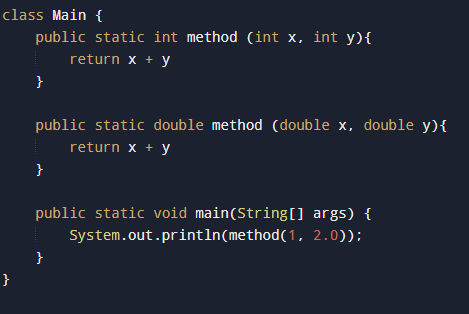
error

Space
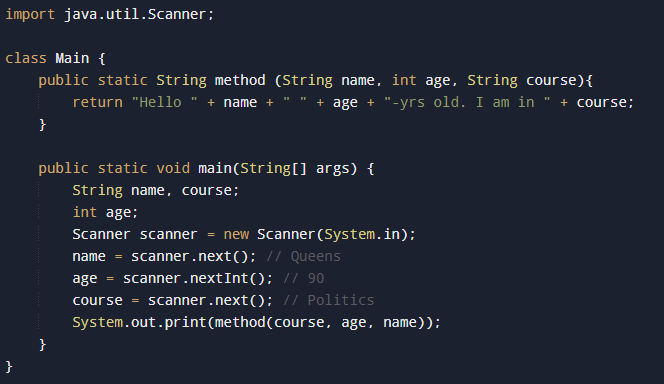
Hello Politics 90-yrs old. I am in Queens
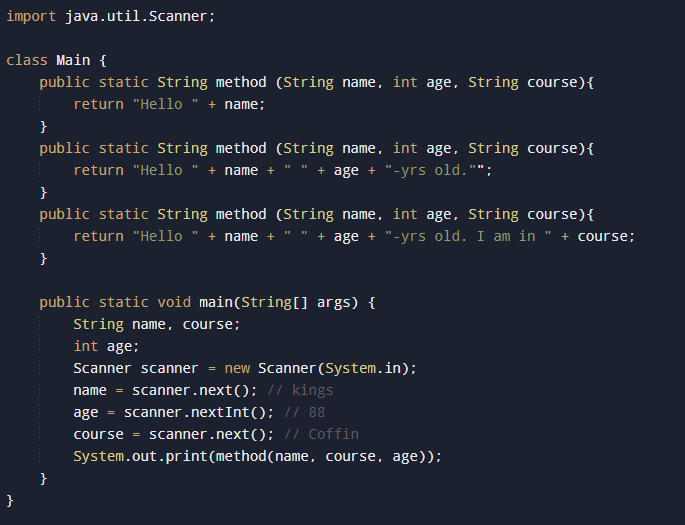
error
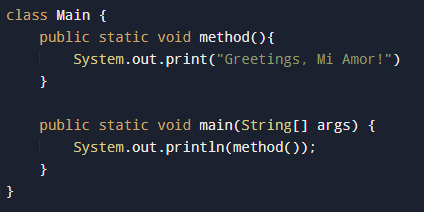
error

aLEJANDRO

error
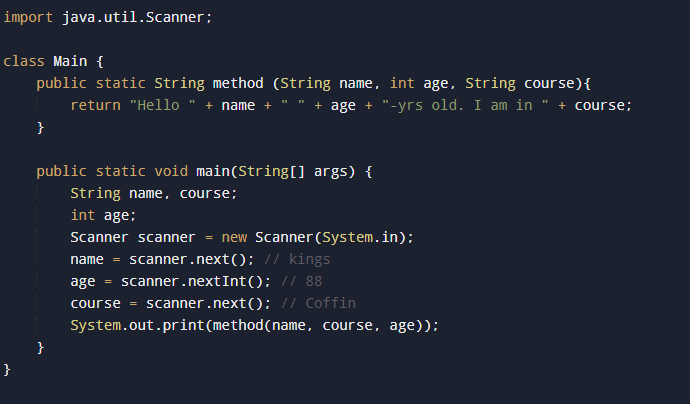
error
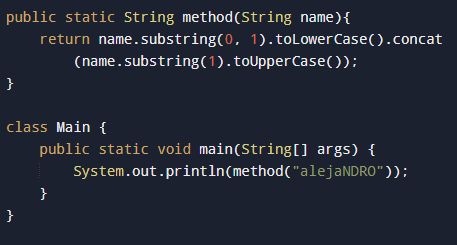
error

error
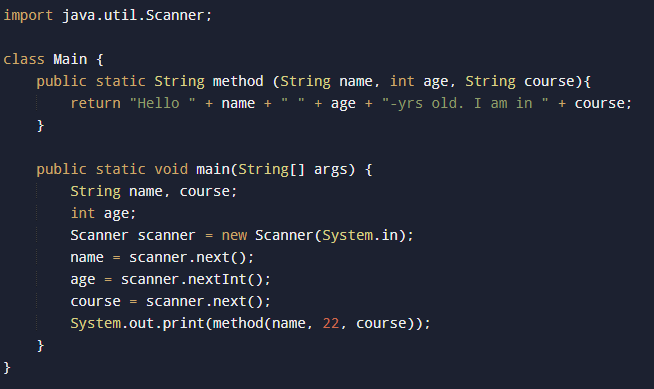
error

true
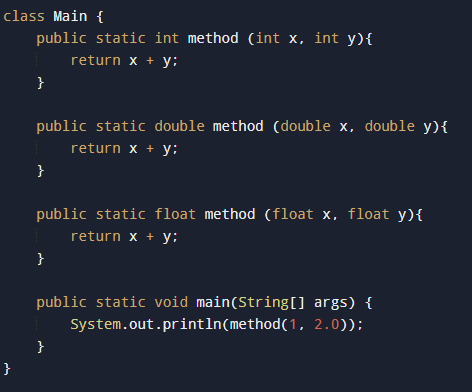
3.0
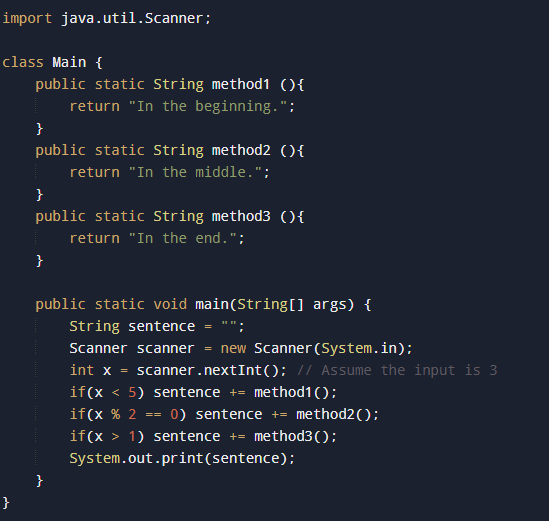
In the beginning.In the end.
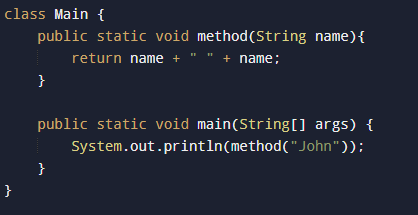
error
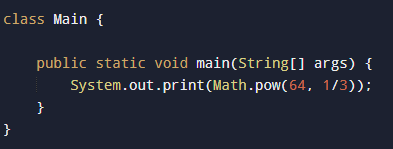
1.0

1.0
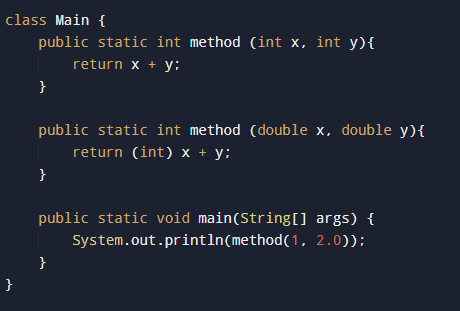
error
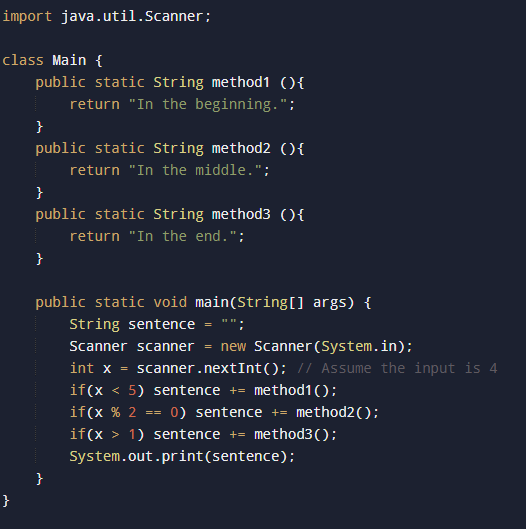
In the beginning.In the middle.In the end.

5

false
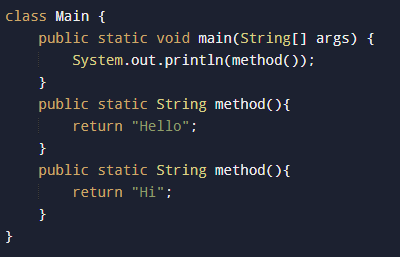
error
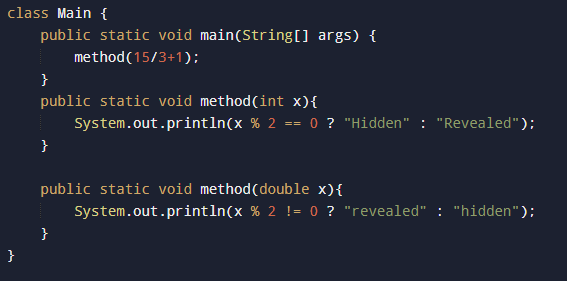
Hidden

1.0
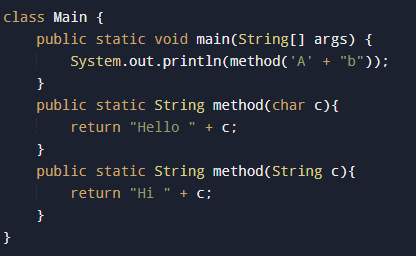
Hi Ab
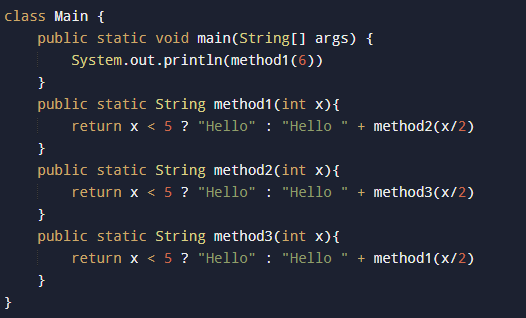
error

1728.0

true

error
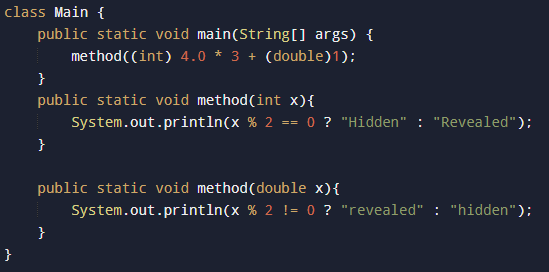
revealed
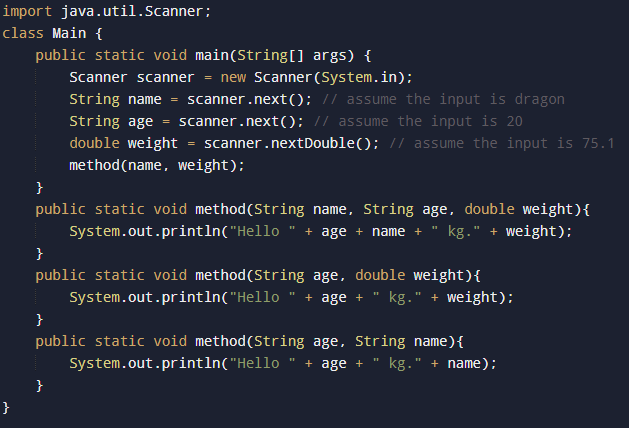
Hello dragon kg.75.1

error
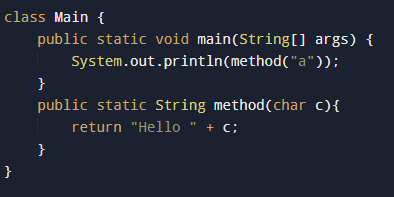
error
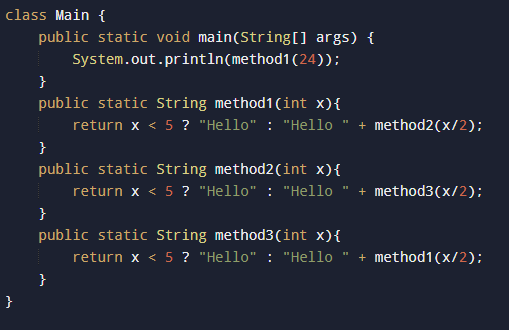
Hello Hello Hello Hello

Alejandro de JuanAlejandr.

0.0
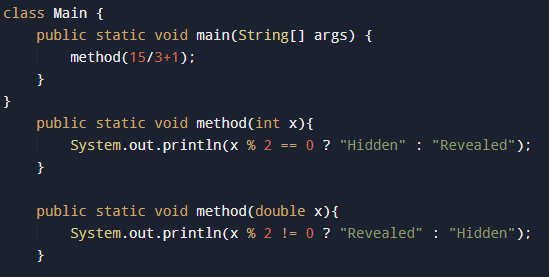
error
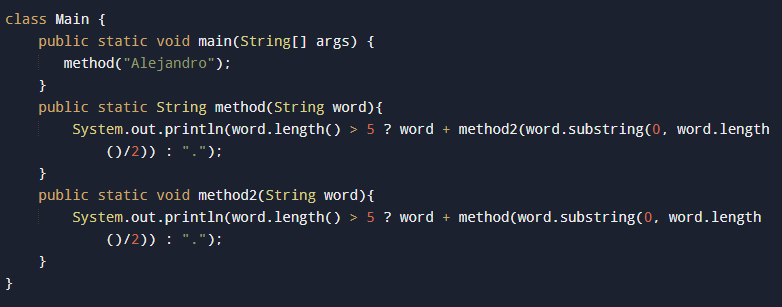
error

2

error
Assume that you have a program that has 2 files: main.java and Person.java. main is the main class where the program starts, and the Person is an additional class for the program.
Person has 3 attributes: name, age, and address. It also has a default constructor, setters and getters for the fields. If in the main method of the main class we create an object of Person that has an identifier of person, what should be the line of code that will declare and instantiate that object?
Person person = new Person();
You are presented with a family of classes: Person, Student, and Staff.
Person has 2 attributes namely a String name and String address. This class also has the default constructor and another one that accepts 2 arguments: String name and String address in that sequence.
Student is a subclass of Person and has 1 attribute being the String studentId. It has the default constructor for the class and another one that accepts 3 arguments: String studentId, String name, and String address in that sequence.
Staff is a subclass of Person also and has 1 attribute being the float salary. There is no constructor stated on this class as well as no setters and getters for the local attribute.
Given the situation, if an object of Staff called steff were to have its attributes be updated such that its salary will be 50.05, what must be the line of code that we need to do such a thing?
steff.salary = 50.05f;
You are presented with a family of classes: Person, Student, and Staff.
Person has 2 attributes namely a String name and String address. This class also has the default constructor and another one that accepts 2 arguments: String name and String address in that sequence.
Student is a subclass of Person and has 1 attribute being the String studentId. It has the default constructor for the class and another one that accepts 3 arguments: String studentId, String name, and String address in that sequence.
Staff is a subclass of Person also and has 1 attribute being the double salary. There is no constructor stated on this class but has setters and getters for the local attribute.
Given that situation, if in the main method of the main class, what must be the line of code I need if I want to declare and instantiate an object of Student named stud that has the name of Alejandro, address of Davao, and Id number of 5555?
Student stud = new Student("5555", "Alejandro", "Davao");
60.0
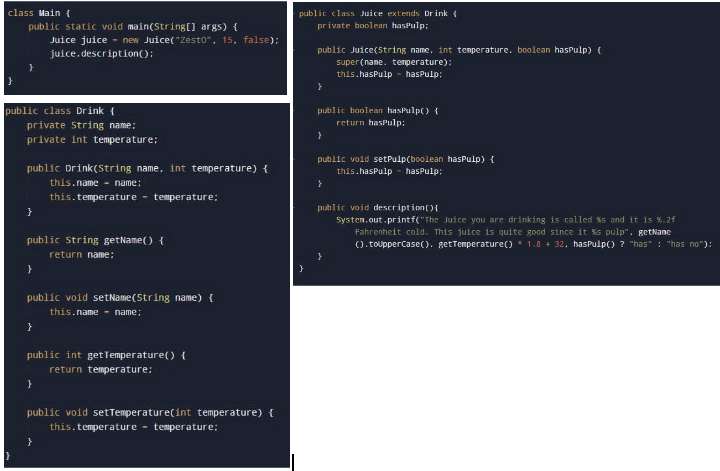
The Juice you are drinking is called ZESTO and it is 59.00 Fahrenheit cold. This juice is quite good since it has no pulp
LIGHT
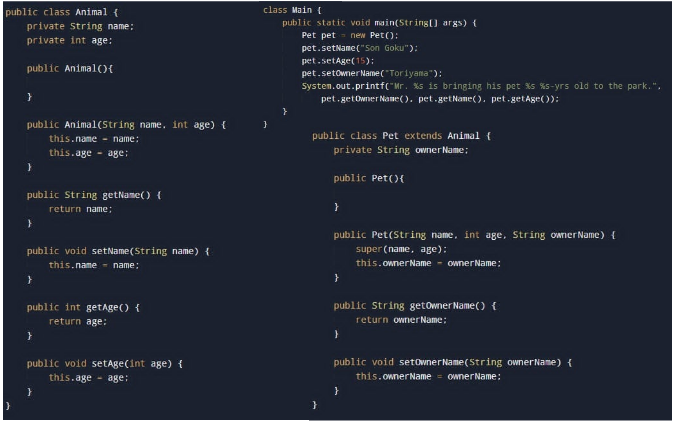
Mr. Toriyama is bringing his pet Son Goku 15-yrs old to the park.
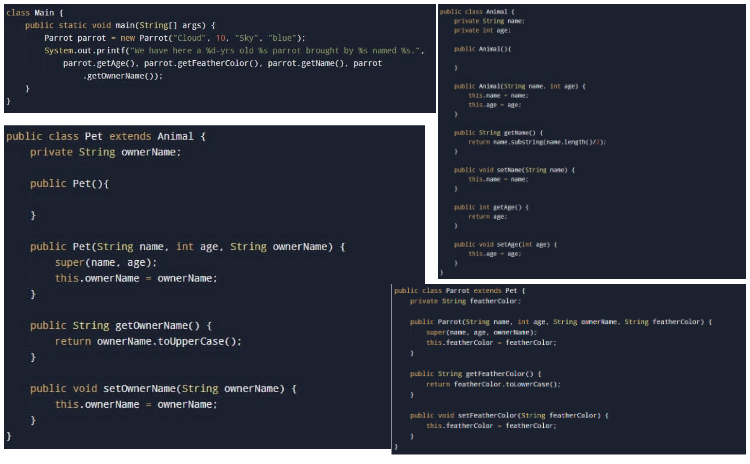
We have here a 10-yrs old blue parrot brought by oud named SKY.
Assume that you have a program that has 2 files: main.java and Person.java. main is the main class where the program starts, and the Person is an additional class for the program.
Person has 2 private attributes: String name and String age. It also has one more attribute being an integer yrLevel. It has a default constructor, setters and getters for the private fields. If in the main method of the main class we have an object of Person that has an identifier of pers, what should be the line of code that we need if we got an input from the user using JOptionPane that has a prompt of "Enter year level:" and we assign that to the object's yrLevel?
pers.yrLevel = Integer.parseInt(JOptionPane.showInputDialog(“Enter year level:”));
You are presented a program that has 2 files: main and Animal. The Animal class has 2 private attributes: String kingdom and double lifespan. The Animal class also has no explicit constructors defined in it, but it does have setters and getters for the field attributes.
In the main method of the main class, an object named animal has been declared as an Animal object and instantiated as an Animal. If I were to mutate the kingdom attribute of that object into the value mammal, what must be the line of code that I must write?
animal.setKingdom(“mammal”);
Assume that you have a program that has 2 files: main.java and Person.java. Main is the main class where the program starts, and the Person is an additional class for the program.
Person has 2 private attributes: name and address. It also has a default constructor, setters, and getters for the fields. If in the main method of the main class we create an object of the Person that has an identifier of person1, what should be the line of code that will display the address in the console?
System.out.println(person1.getAddress());
You are presented with a Food class. In this class, you have 2 private attributes: String food and double calories. There is the default constructor, as well as getters and setters for all the fields.
If we were to declare and instantiate an object of Food named foo, what must be the line of code to do so in the main method?
Food foo = new Food();
Given a Person class with 3 fields: String name, String age, and String address. There are no explicit constructors dictated in the class nor are there any setters and getters for the fields.
What must then be the code if we were to assign the age field of an object of Person named pers with the value 100.
pers.age = “100”;
You are presented with a family of classes: Person, Student, and Staff.
Person has 2 attributes namely a String name and String address. This class also has the default constructor and another one that accepts 2 arguments: String name and String address in that sequence.
Student is a subclass of Person and has 1 attribute being the String studentid, It has the default constructor for the class and another one that accepts 3 arguments: String studentid, String name, and String address in that sequence.
Staff is a subclass of Person also and has 1 private attribute being the float salary. There is no constructor stated on this class but has setters and getters for the local attribute.
Given the situation, if an object of Staff called steff were to have its attributes be updated such that its salary will be 100.1, what must be the line of code that we need to do such a thing?
steff.setSalary(100.1f);
You are presented a family of classes: Drink, Wine, Juice, and Beer. Drink has 2 private fields: String name and integer liters. It also has the default constructors and another that accepts the field values name and liters in that sequence. There are setters for the fields.
The Wine class extends the Drink class and has 1 private field: String taste. It has the default constructor and another that accepts the field values taste, name, and liters in that sequence. There are setters and getters for the local field.
The Juice class extends the Drink class and has 2 private fields: String brand and boolean hasPulp. It doesn't have any explicit constructors dictated but it does have setters and getters for the local fields.
The Beer class extends the Drink class and has 1 field: String quality. It also doesn't have any constructors made for it.
Given that situation, what must be the line of code we need in the main method if we were to mutate the liters field of an object named dri of the Drink class? The value we pass as argument comes directly from a JOptionPane input dialog box which prompts the user "enter liters:".
dri.setLiters(Integer.parseInt(JOptionPane.showInputDialog("enter liters:")));
Assume that you have a program that has 2 files: main.java and Person.java. main is the main class where the program starts, and the Person is an additional class for the program.
Person has 2 private attributes: String name and String age. It also has one more attribute being a String yrLevel. It has a default constructor, setters and getters for the private fields. If in the main method of the main class we have an object of Person that has an identifier of pers, what should be the line of code that we need if we got an input from the user using JOptionPane that has a prompt of "Enter year level:" and we assign that to the object's yrLevel?
pers.yrLevel = JOptionPane.showInputDialog(“Enter year level:”);
You are presented a family of classes: Drink, Wine, Juice, and Beer. Drink has 2 private fields: String name and double liters. It also has the default constructors and another that accepts the field values name and liters in that sequence.
The Wine class extends the Drink class and has 1 private field: String taste. It has the default constructor and another that accepts the field values taste, name, and liters in that sequence. There are setters and getters for the local field.
The Juice class extends the Drink class and has 2 private fields: String brand and boolean hasPulp. It doesn't have any explicit constructors dictated but it does have setters and getters for the local fields.
The Beer class extends the Drink class and has 1 field: Integer quality. It also doesn't have any constructors made for it.
Given that situation, what must be the line of code we need in the main method if we were to only declare a Beer object named bee?
Beer bee;
You are presented a program that has 2 files: main and Animal. The Animal class has 2 attributes: String kingdom and double lifespan. The Animal class also has no explicit constructors defined in it, but it does have getters for the field attributes.
In the main method of the main class, an object named animal has been declared as an Animal object and instantiated as an Animal. If I were to assign the kingdom attribute of that object into the value invertebrate, what must be the line of code that I must write?
animal.kingdom = “invertebrate”;
You are presented with a family of classes: Person, Student, and Staff.
Person has 2 attributes namely a String name and String address. This class also has the default constructor and another one that accepts 2 arguments: String name and String address in that sequence.
Student is a subclass of Person and has 1 attribute being the String studentid. There is no constructor stated on this class.
Staff is a subclass of Person also and has 1 attribute being the double salary. There is no constructor stated on this class but has setters and getters for the local attribute.
Given that situation, if in the main method of the main class, what must be the line of code we need if we were to declare and instantiate a Student object named stud?
Student stud = new Student();
You are presented a family of classes: Drink, Wine, Juice, and Beer. Drink has 2 private fields: String name and String liters. It also has the default constructors and another that accepts the field values name and liters in that sequence. There are setters for the fields.
The Wine class extends the Drink class and has 1 private field: String taste. It has the default constructor and another that accepts the field values taste, name, and liters in that sequence. There are setters and getters for the local field.
The Juice class extends the Drink class and has 2 private fields: String brand and boolean hasPulp. It doesn't have any explicit constructors dictated but it does have setters and getters for the local fields.
The Beer class extends the Drink class and has 1 field: String quality. It also doesn't have any constructors made for it.
Given that situation, what must be the line of code we need in the main method if we want to declare and instantiate an object of wine named wine with the values Carlo Rosi for the name, 1 for the liters, and sweet-sour for the taste?
Wine wine = new Wine(“sweet-sour”, ”Carlo Rosi”, ”1”);